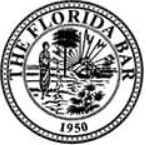Choosing to live in a condominium can have many benefits including that some parts of the condo and areas around the condo are maintained without the owner of the condominium having to worry about it. Because of this, there can be some unique areas of the law and legal implications to be familiar with associated with the legal structure of owning a condominium.
Condominium law provides that part of the condominium may be individually owned while other parts are commonly owned through joint ownership. It is important for owners of condos and those considering the purchase of a condominium to understand this and be familiar with what it means and its implications. There are important contract implications and implications on the owner’s rights and responsibilities related to the condo and common areas.
In addition, if a dispute comes up related to the shared or individual ownership of the condo, it is essential to be familiar with how to handle it. Condominium law does not exist in a vacuum and impacts the property rights of the condo owner, as well as their home and living space. As result, it is useful to understand how to address concerns that may come up for condo owners, those purchasing or selling a condo and those related to condominium boards and condominium developments and developers.
Condominium law can be especially complex which is why trained guidance can be helpful when considering the purchase of a condo, walking through he purchase or sales process or handling disputes. Condominium law is in place to help condo owners so they should be familiar with how it protects their rights and interests.







